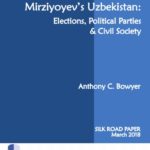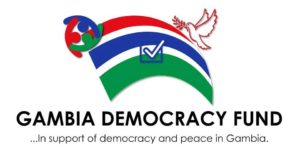
Armenia Public Radio
Democracy is under siege. But the evidence that democracy is good for growth doesn’t directly speak to whether democracy is easy to make work. Nor does it imply or maintain that nondemocratic countries will seamlessly transition to democracy, notes MIT’s Daron Acemoglu (left). Democracy requires work and will often face headwinds, and not only because the idea of democracy is often threatening to powerful international actors such as Russia and China today. Its most important problems are not external, but internal, he writes for Bloomberg:
 First, democracy creates losers as well as winners. After all, somebody has to pay the higher taxes it imposes and those who see their monopolies disappear tend to be not too happy with it. These tensions, especially when the losers are powerful enough to undermine democracy, are one major reason why the fate of many democracies has been precarious.
First, democracy creates losers as well as winners. After all, somebody has to pay the higher taxes it imposes and those who see their monopolies disappear tend to be not too happy with it. These tensions, especially when the losers are powerful enough to undermine democracy, are one major reason why the fate of many democracies has been precarious.
- Even more important is what recent events in the U.S., as well as those in several other countries ranging from Hungary to Turkey and Venezuela illustrate: democratic checks and norms often stand in the way of eager strongmen who will then try to undercut and decimate them. Democratic politics becomes more difficult during times of hardship because of natural forces leading to polarization or greater unwillingness to compromise, which is an essential pillar of democracy. RTWT
 Despite the much-vaunted autocratic resurgence, it is also clear that the authoritarian model is in crisis. Even in Central Asia, a bastion of autocratic rule, Uzbekistan’s President has initiated a reform program promoting economic liberalization, good governance, judicial reform and rule of law. Ethiopia is rejecting its China-style developmental state model in favor of political pluralism; while Armenia’s recent velvet revolution could become a laboratory for post-Soviet democracy, some suggest, while the head of an Armenian think-tank called it a wake-up call….a scary message for neighboring autocratic states.”
Despite the much-vaunted autocratic resurgence, it is also clear that the authoritarian model is in crisis. Even in Central Asia, a bastion of autocratic rule, Uzbekistan’s President has initiated a reform program promoting economic liberalization, good governance, judicial reform and rule of law. Ethiopia is rejecting its China-style developmental state model in favor of political pluralism; while Armenia’s recent velvet revolution could become a laboratory for post-Soviet democracy, some suggest, while the head of an Armenian think-tank called it a wake-up call….a scary message for neighboring autocratic states.”
 The robustness of democracy is also evident in Malaysia’s election tsunami, which showed how democratic institutions can rebound and revive, even after years of one-party rule and how the seeds planted in Anwar Ibrahim’s call for reformasi in 1998 bore fruit in a seismic power shift; in The Gambia, described as “the star performer” in the 2017 rankings of the Economist’s annual Democracy Index, after it ended 22 years of dictatorial rule; in Tunisia, where local elections suggest that the country can sustain democracy despite economic and political a difficulties; and in South Africa where a mobilized civil society and independent judiciary forced President Jacob Zuma from office, preventing the country from degenerating into a kleptocracy.
The robustness of democracy is also evident in Malaysia’s election tsunami, which showed how democratic institutions can rebound and revive, even after years of one-party rule and how the seeds planted in Anwar Ibrahim’s call for reformasi in 1998 bore fruit in a seismic power shift; in The Gambia, described as “the star performer” in the 2017 rankings of the Economist’s annual Democracy Index, after it ended 22 years of dictatorial rule; in Tunisia, where local elections suggest that the country can sustain democracy despite economic and political a difficulties; and in South Africa where a mobilized civil society and independent judiciary forced President Jacob Zuma from office, preventing the country from degenerating into a kleptocracy.







